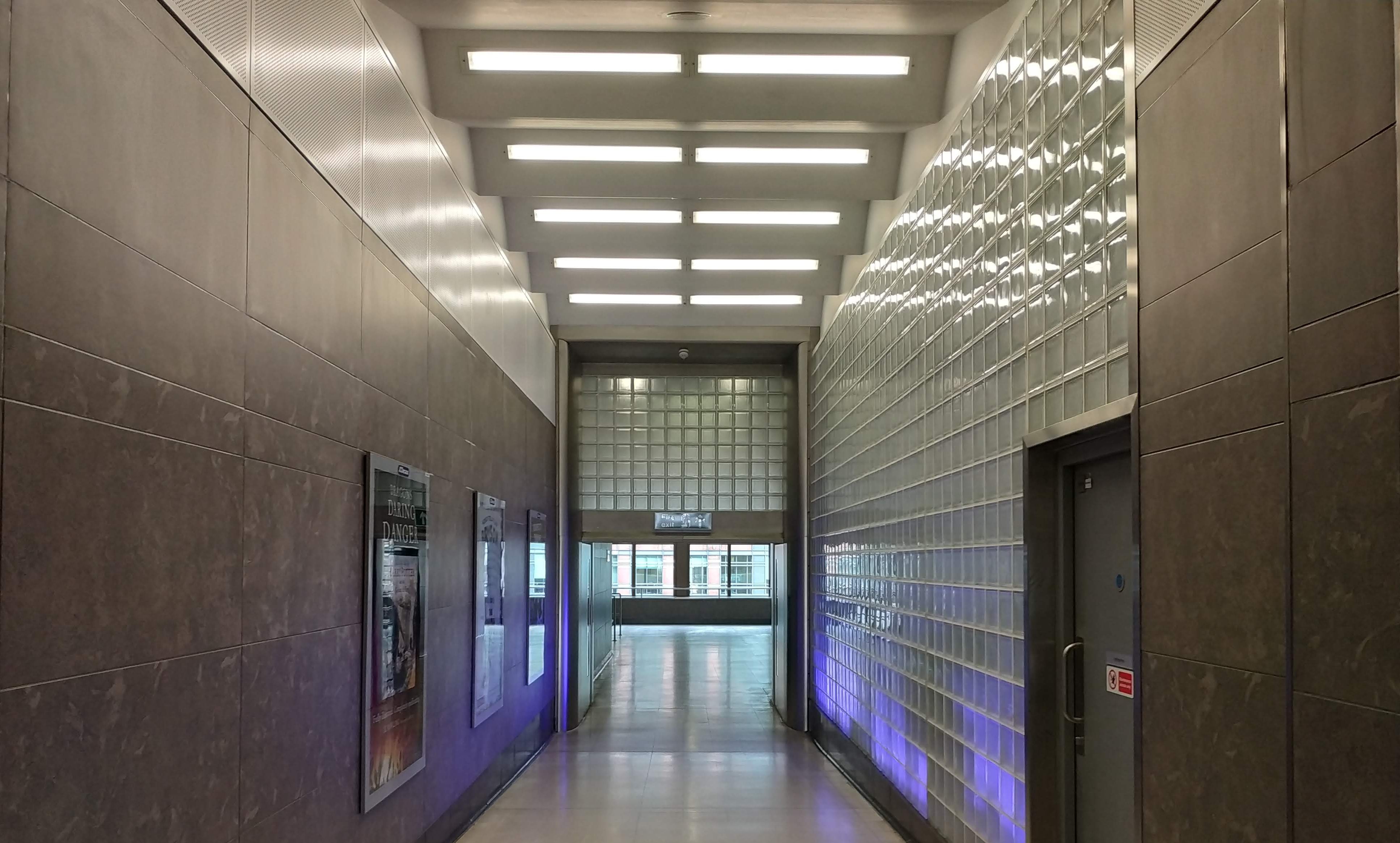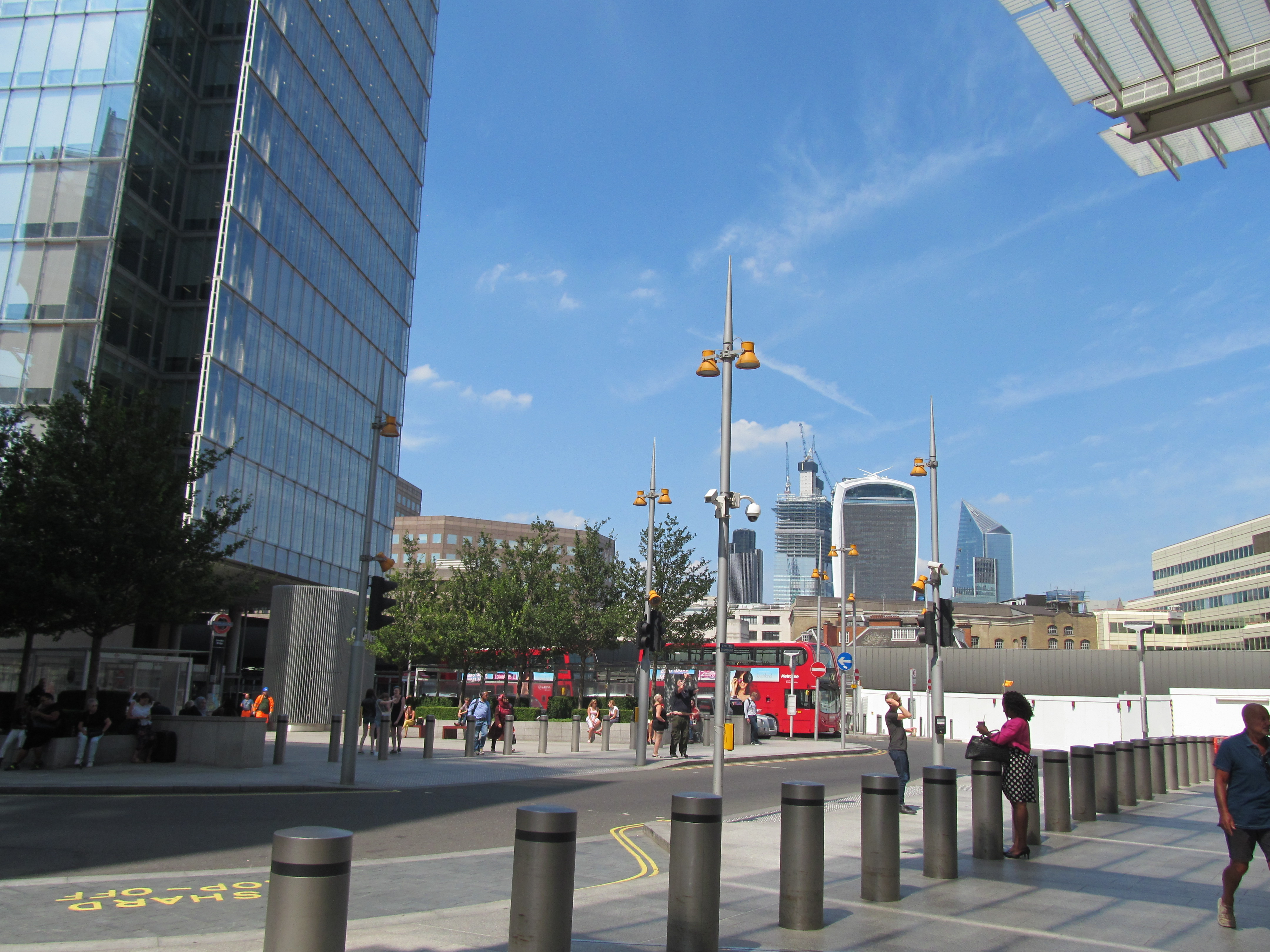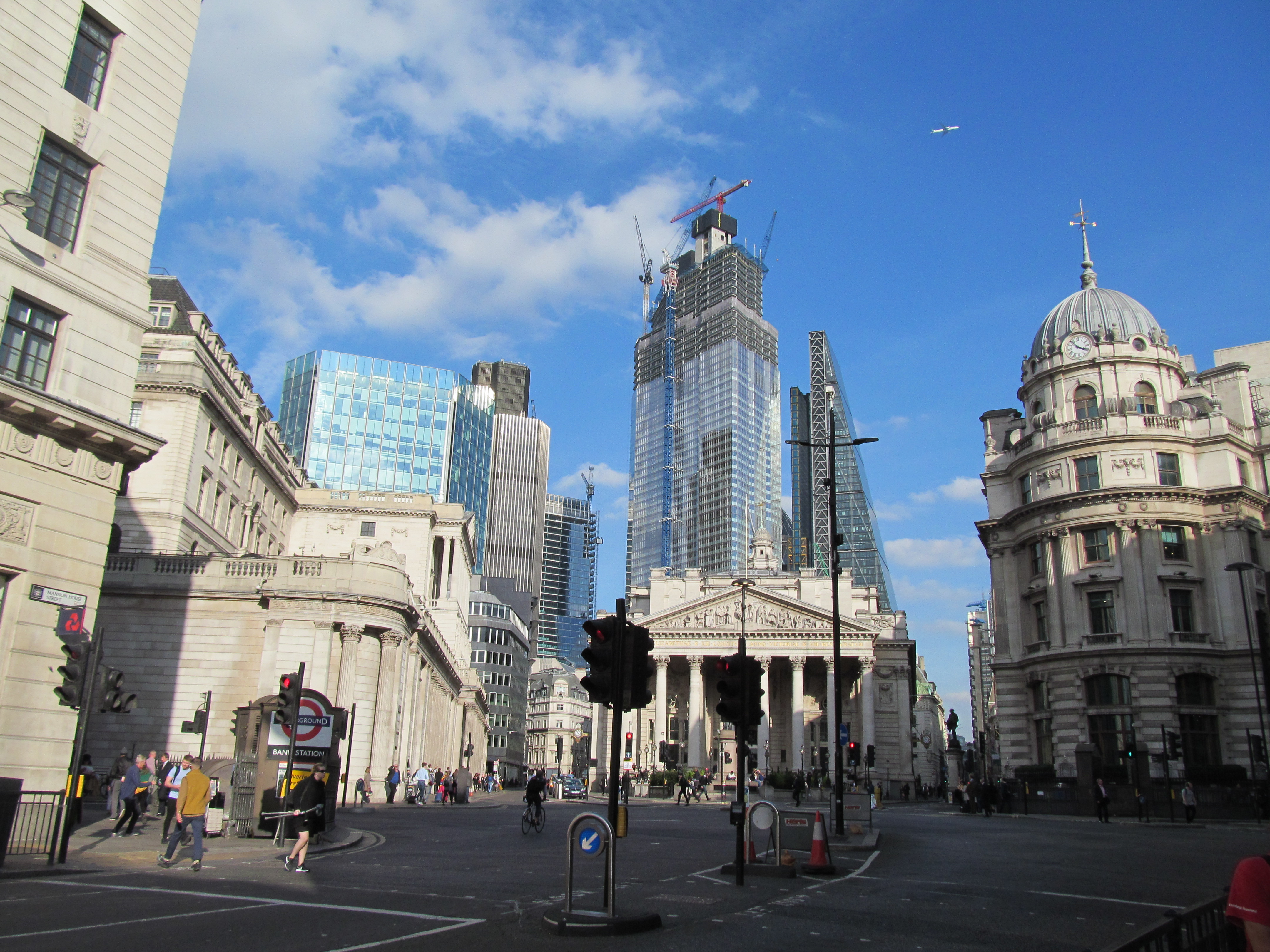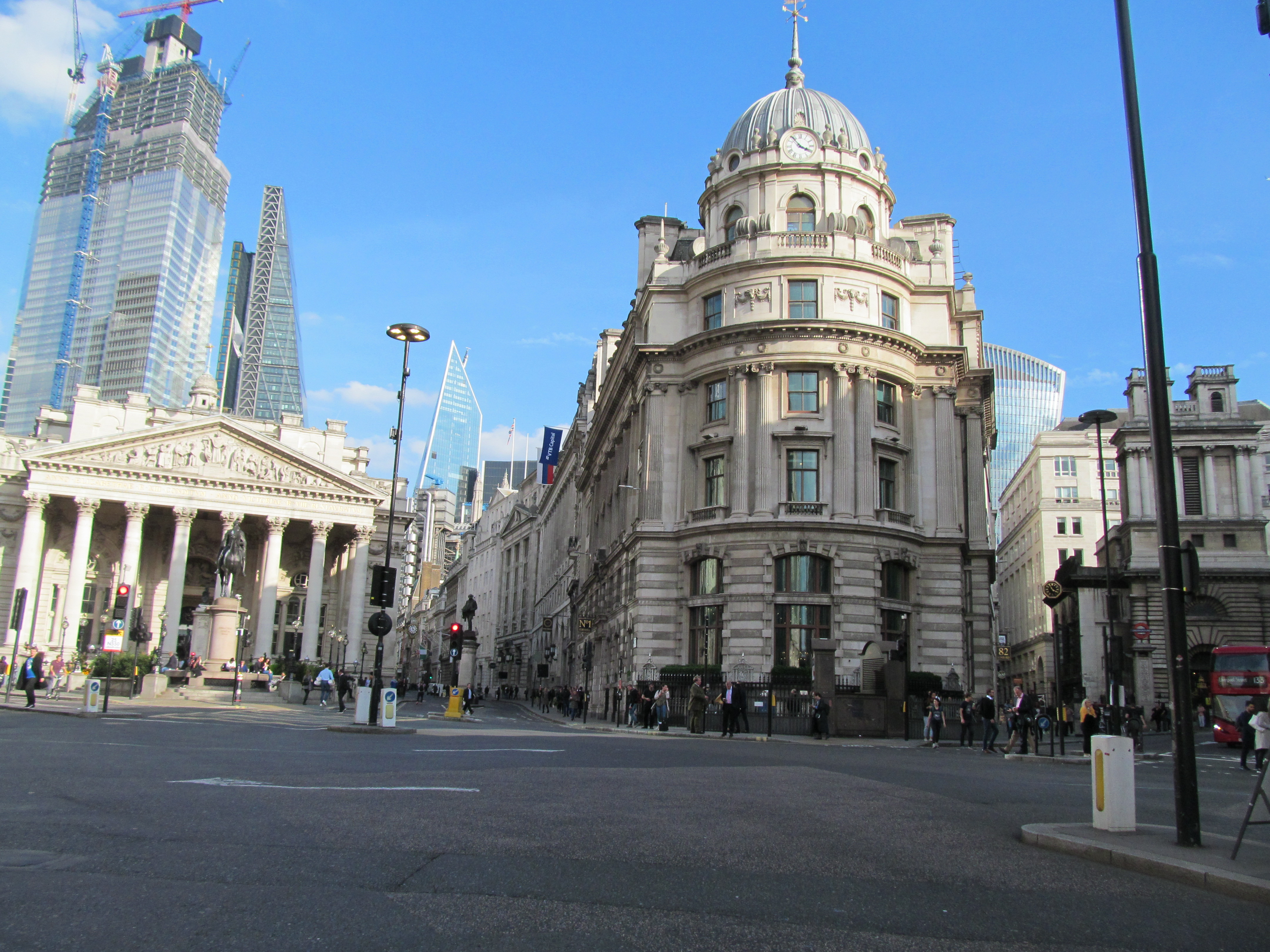Blackfriars Pedway: Deserted, unloved and a glimpse into the recent past
I stumbled upon the Blackfriars Pedway this week. Stumpble being the operative word given there was absolutely no intention of using it until practically on it.
Yep, one remnant of the City of London’s dream of aerial walkways linking sites across the square miles still remains open and accessible – though barely known or used.
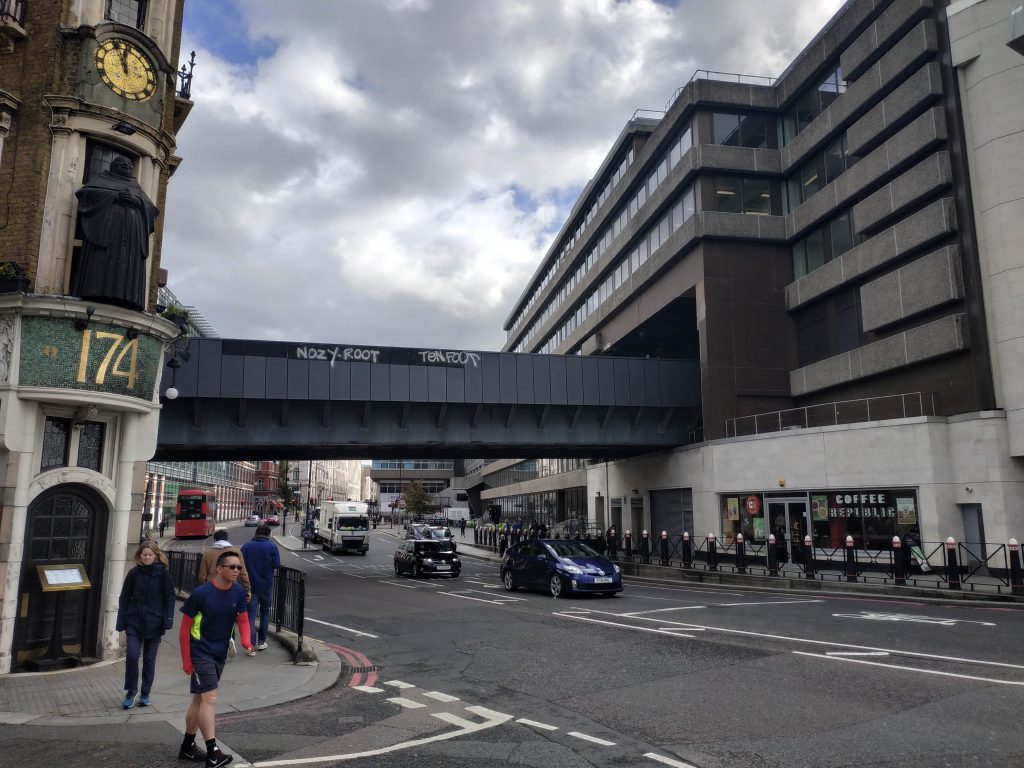
I was looking for the exit in Blackfriars when I chanced upon it. The corridors from the station leading to the walkway are straight out of a Kubrick film. Most would probably turn back.
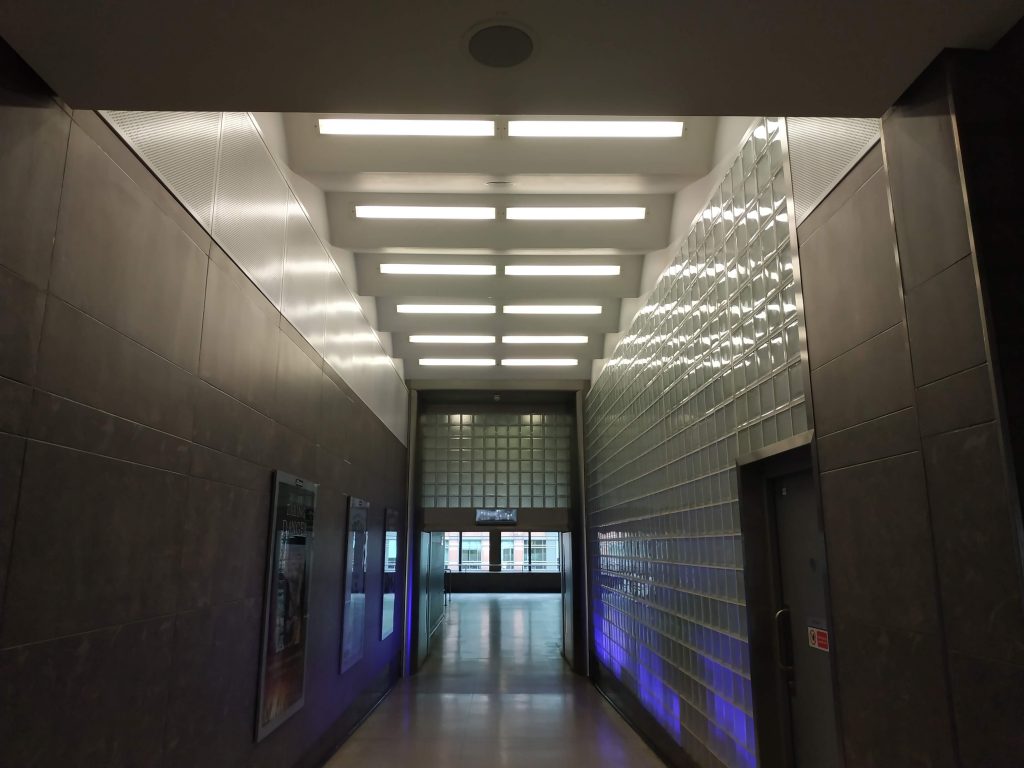
Signage is lacking and there’s the feeling of venturing somewhere you shouldn’t.
The Pedway idea
The Pedway project was a post-war scheme to link various sites across the City via walkways above street level to distance pedestrians from cars below. Some section would meander through buildings. The City insisted new buildings should have entrances at first floor levels to tie into the new network.
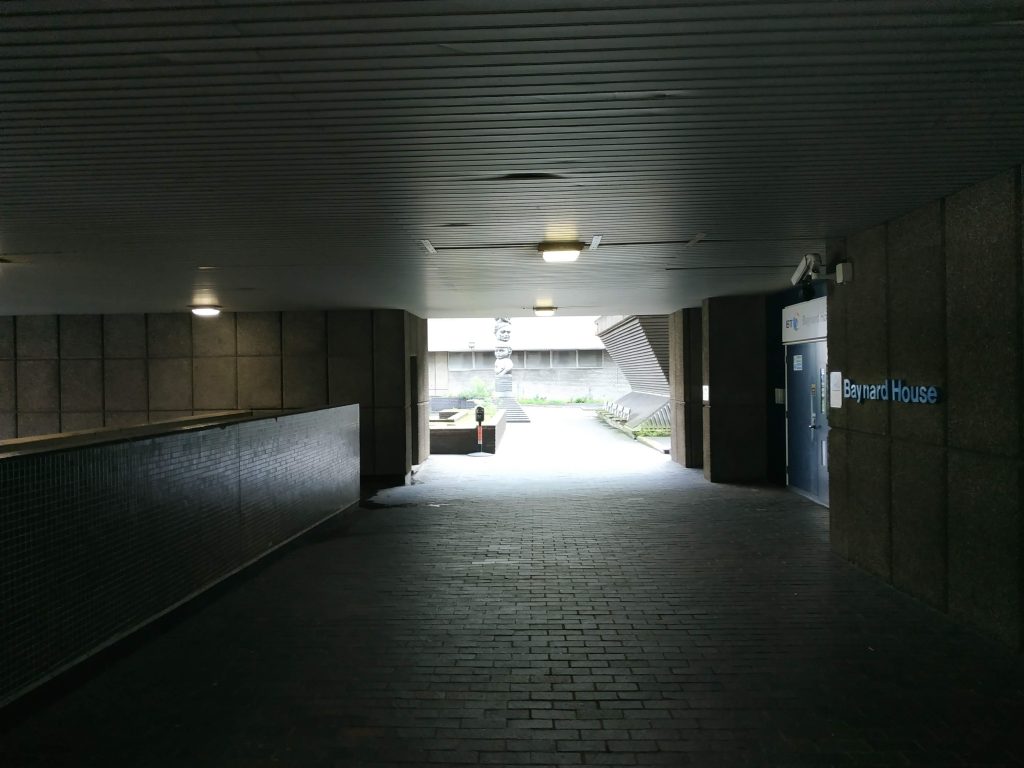
Cars were the future of course in the 1950s and 1960s. Give over street level to roads by removing paving, knocking down buildings, cafes and the like and stick everyone 12 feet up in the air.
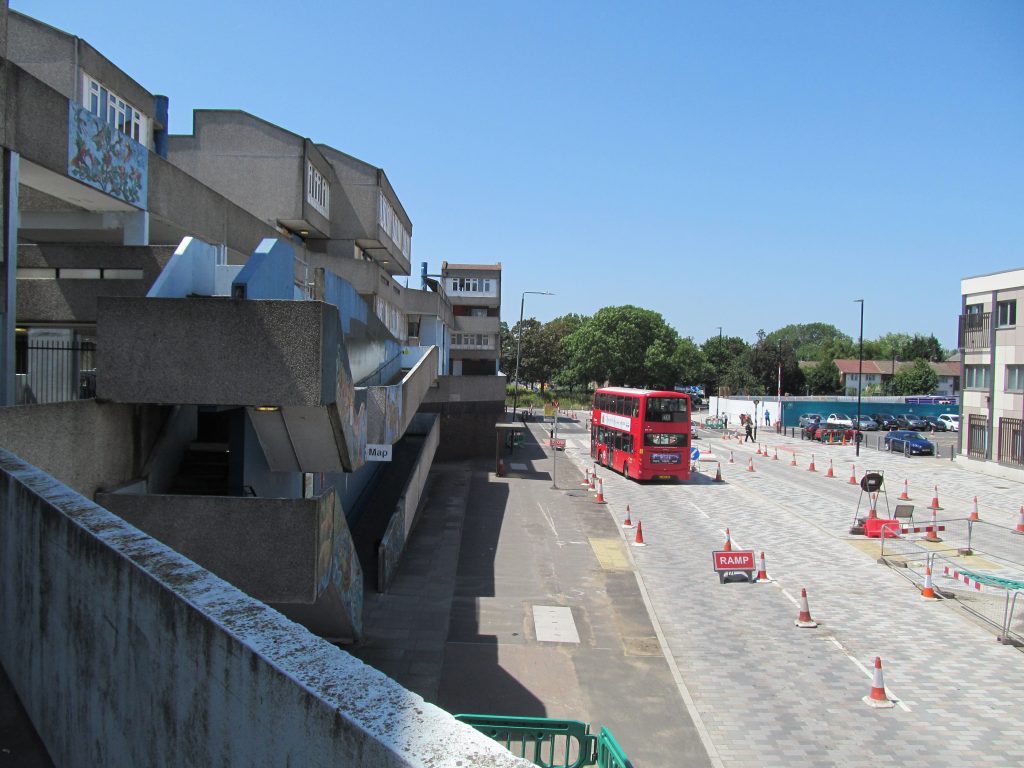
Similar concepts took hold at many estates including Thamesmead. Dual carriageways at street levels and people walking up high.
Thamesmead’s network, like many others, never really worked for many people. A planning application to demolish further parts of Thamesmead’s network was submitted last week and covered here.
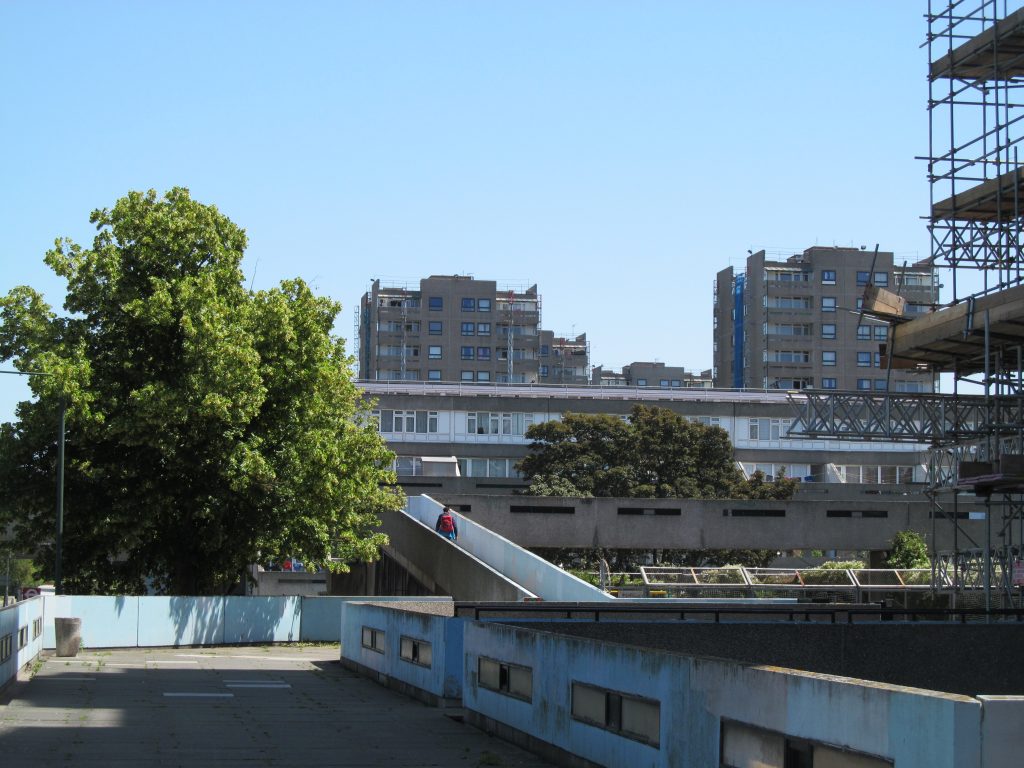
The City Pedway scheme saw numerous mini-projects at locations such as the Barbican, among others, and mainly connected to post-war development in area affected by the blitz. Much died out by the late 1970s with isolated stretches dotted here and there.
This scheme by Blackfriars links the station with the hulking great Baynard House occupied by BT.
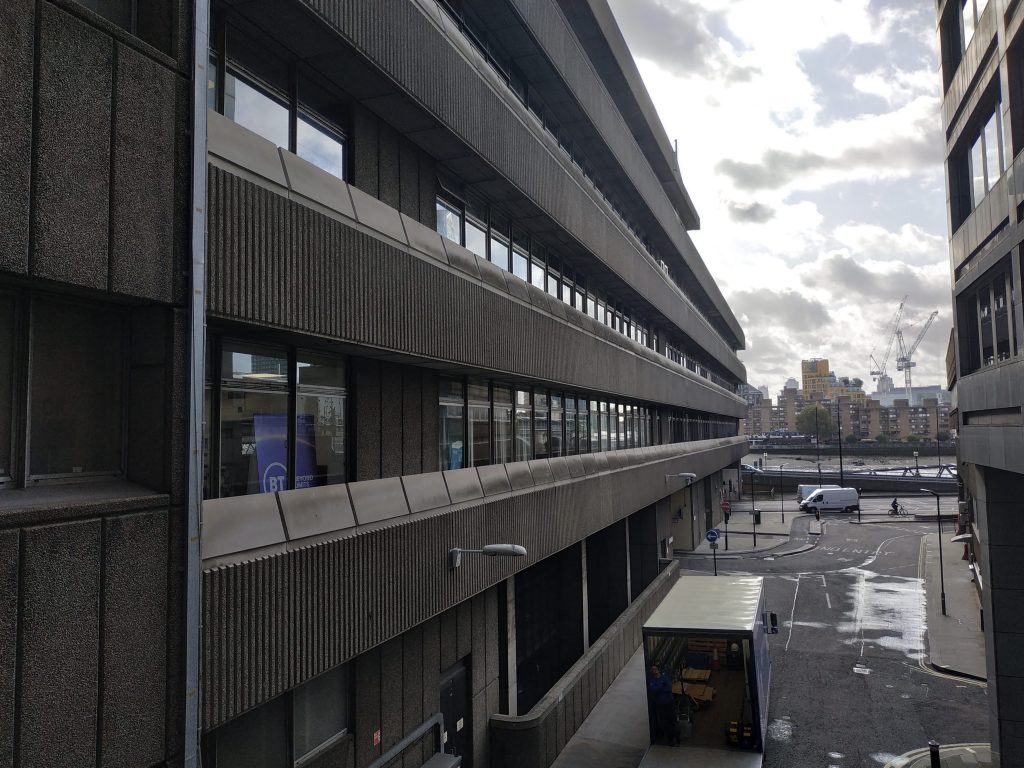
When leaving Blackfriars the Pedway can be reached after heading through heavy doors (the elderly and disabled will struggle to get through) with the City opening up below and beyond.
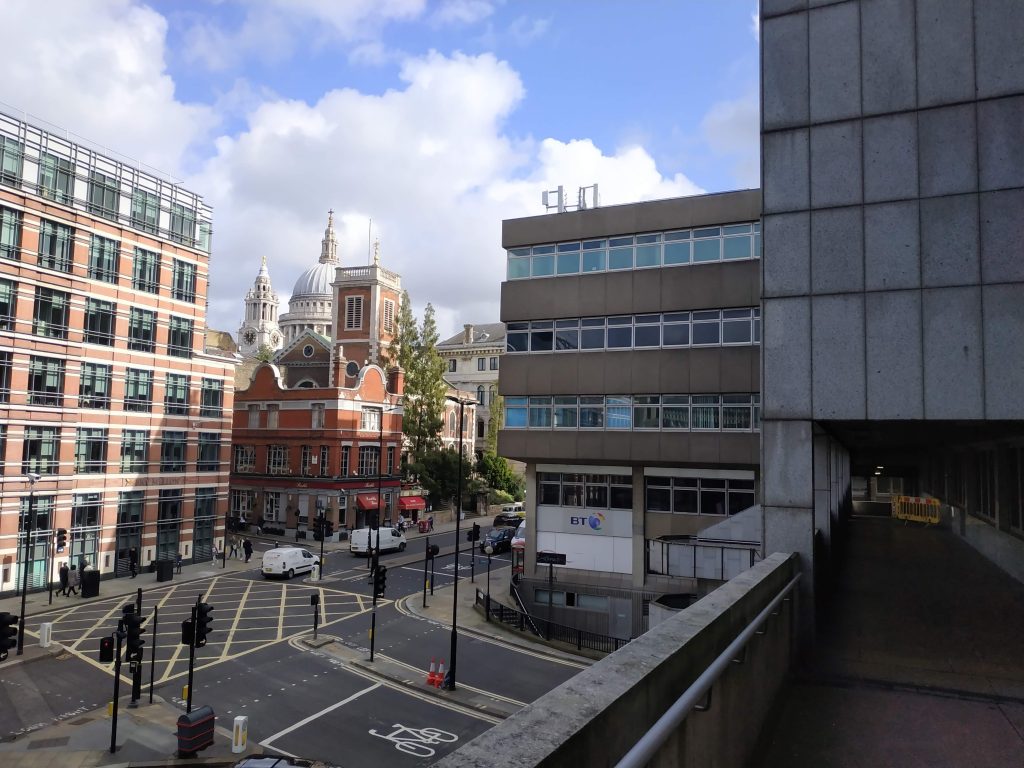
A brief walk in the sun then leads into the building. Note concrete cladding gives way to marble at some points:
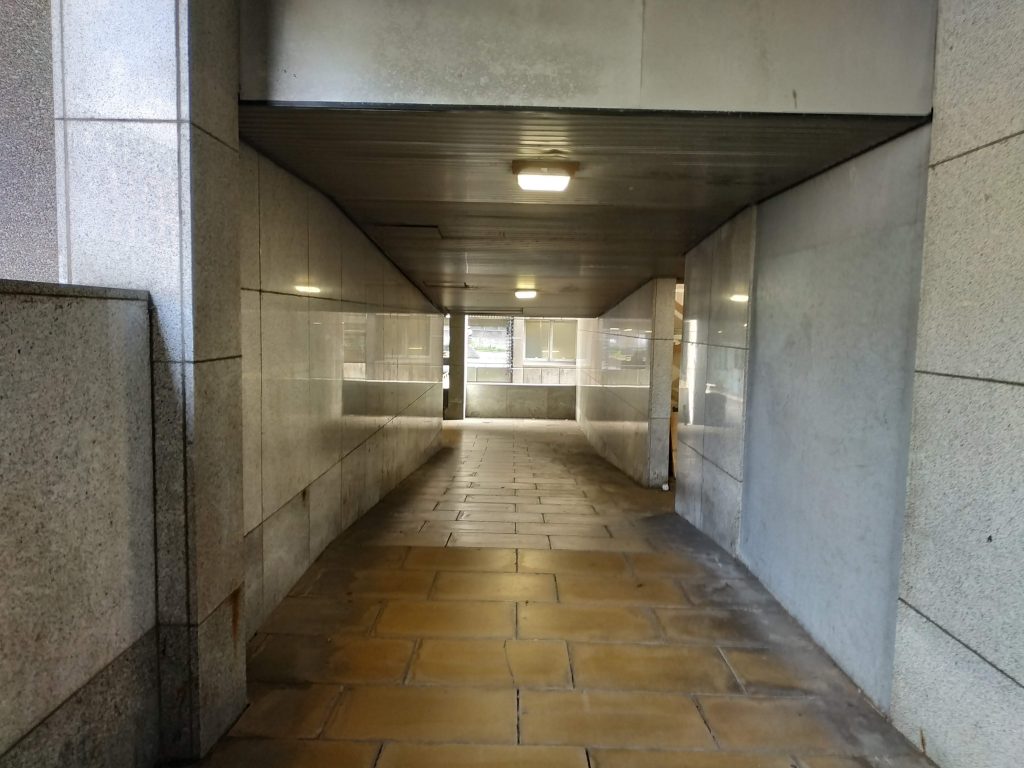
We’re now approaching one of the strangest little bits of public space in the city, but there’s more gloomy walkways to get through.
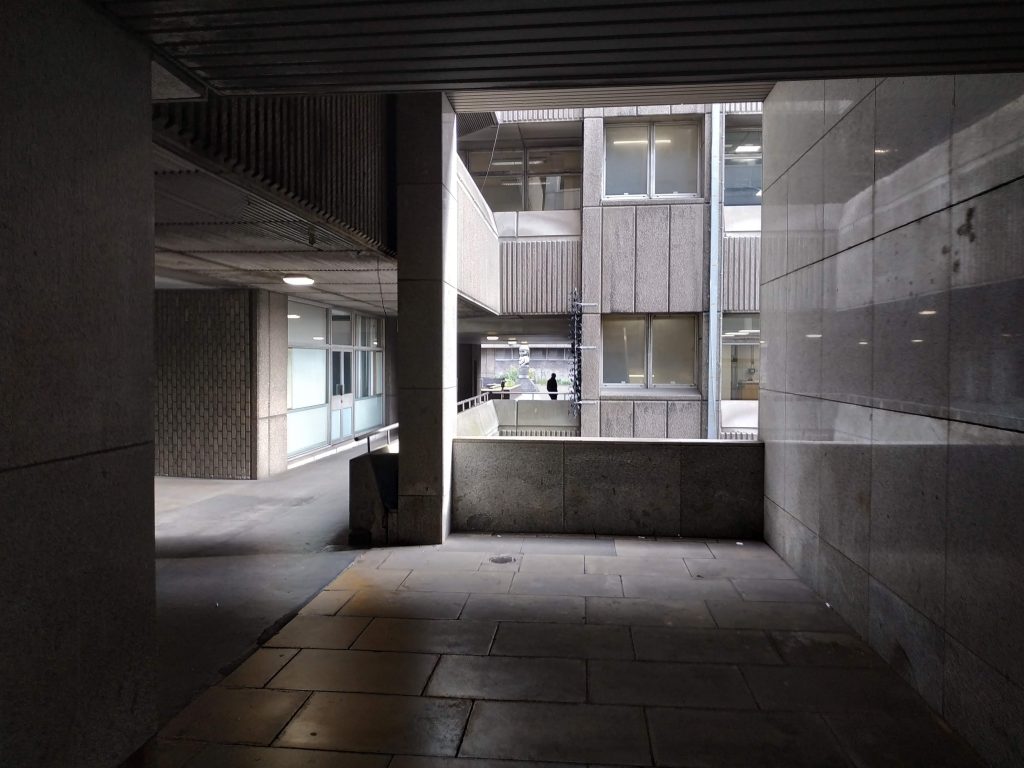
Stairs lead down to street level at regular intervals.
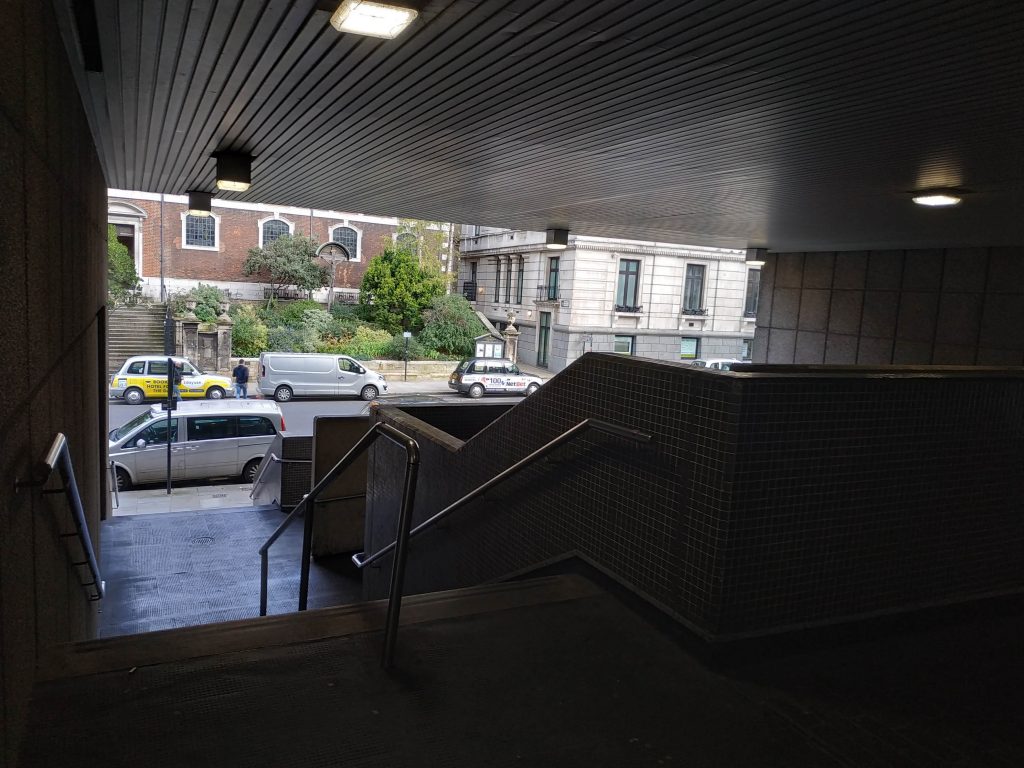
The Mermaid Theatre is worthy of a sign at this point along Queen Victoria Street as we head over Puddle Dock. Nothing else.
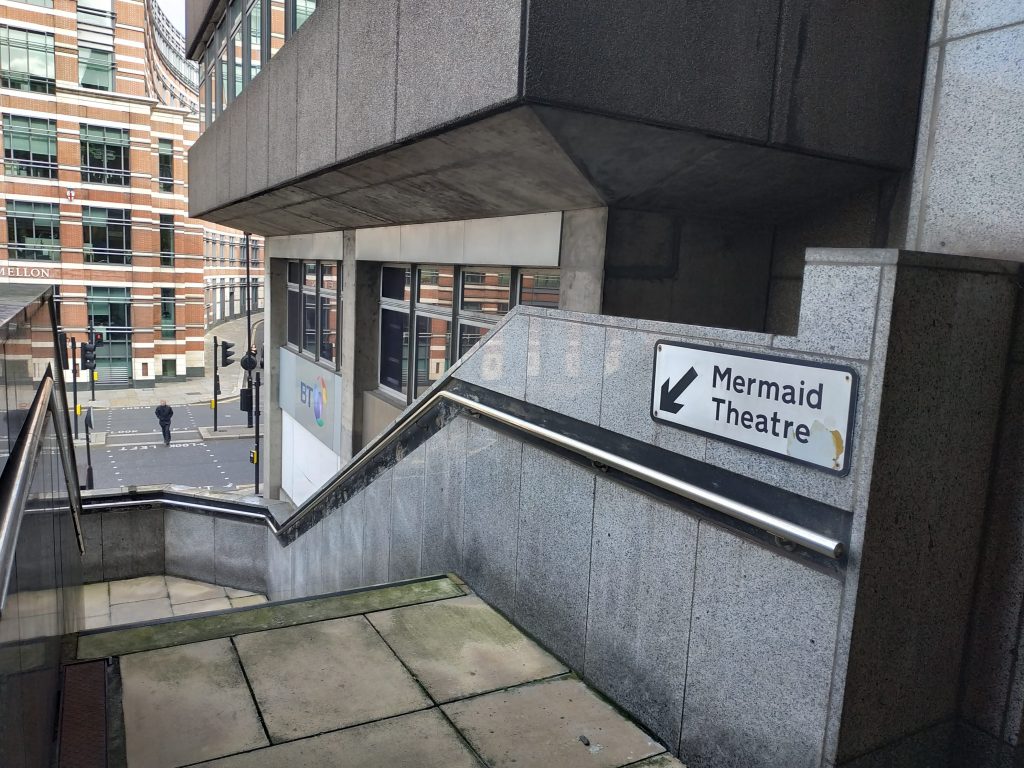
Now along to open space which isn’t the hotbed of socialising and rest imagined at the outset of the scheme.But first, through the BT building’s entrance first, insisted upon by the City of London and which housed the BT museum from 1982 to 1997:

And here we are at one of the quiet little squares to be found within a five mile radius. The sculpture immediately jumps out. One of those which immediately brings a sense of familiarisation as it’s so odd. I’ve seen a few articles about it over the years.
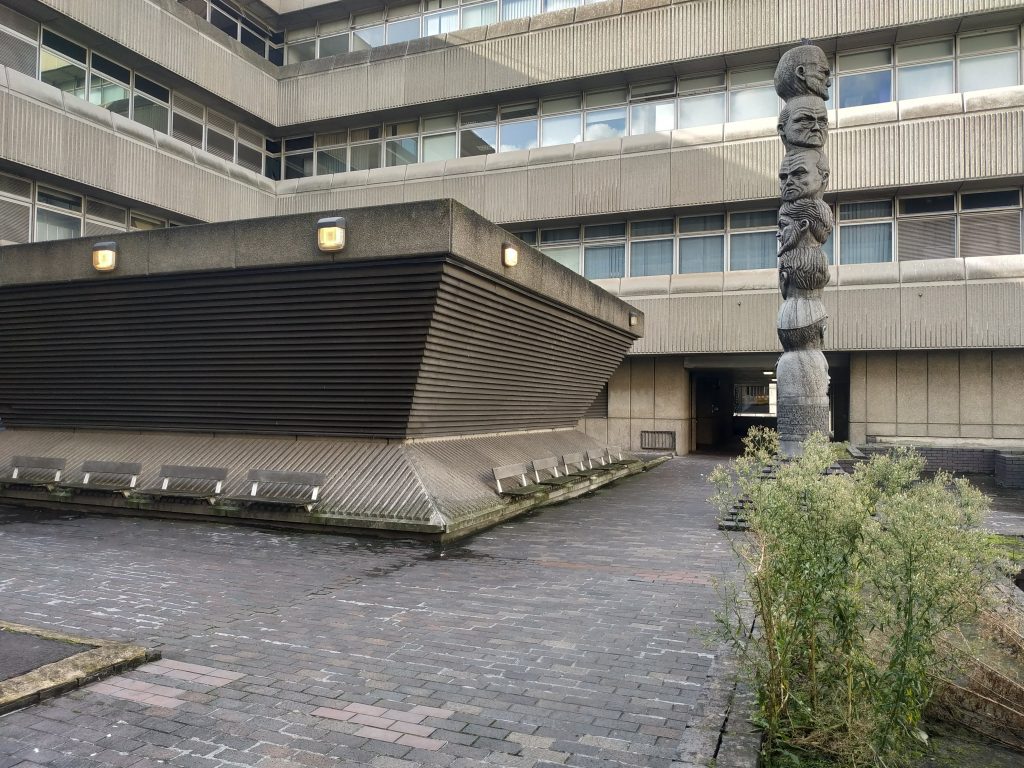
This is the Seven Ages of Man by Richard Kindersley based upon a Shakespeare poem.
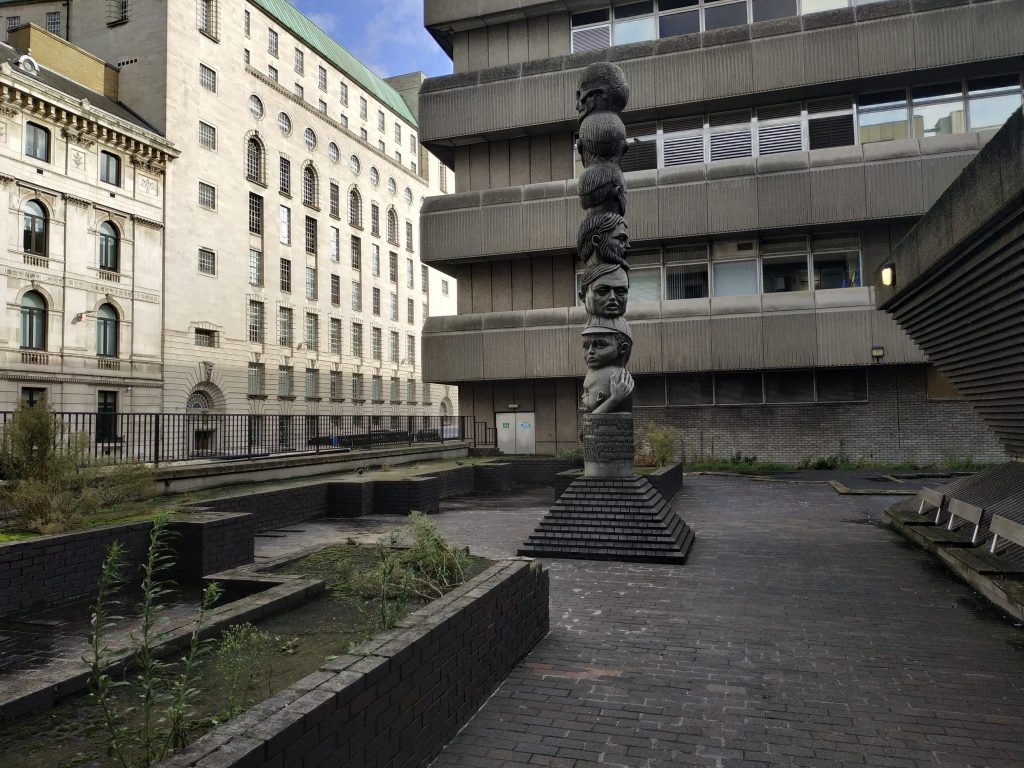
The Pedway dream may be dead but for the first time in nearly 40 years new stretches have been added around London Wall.
A 30 mile network is never happening now but ever more people work in the Square Mile. The solution now is to close many roads and give them over to people including the junction at Bank.
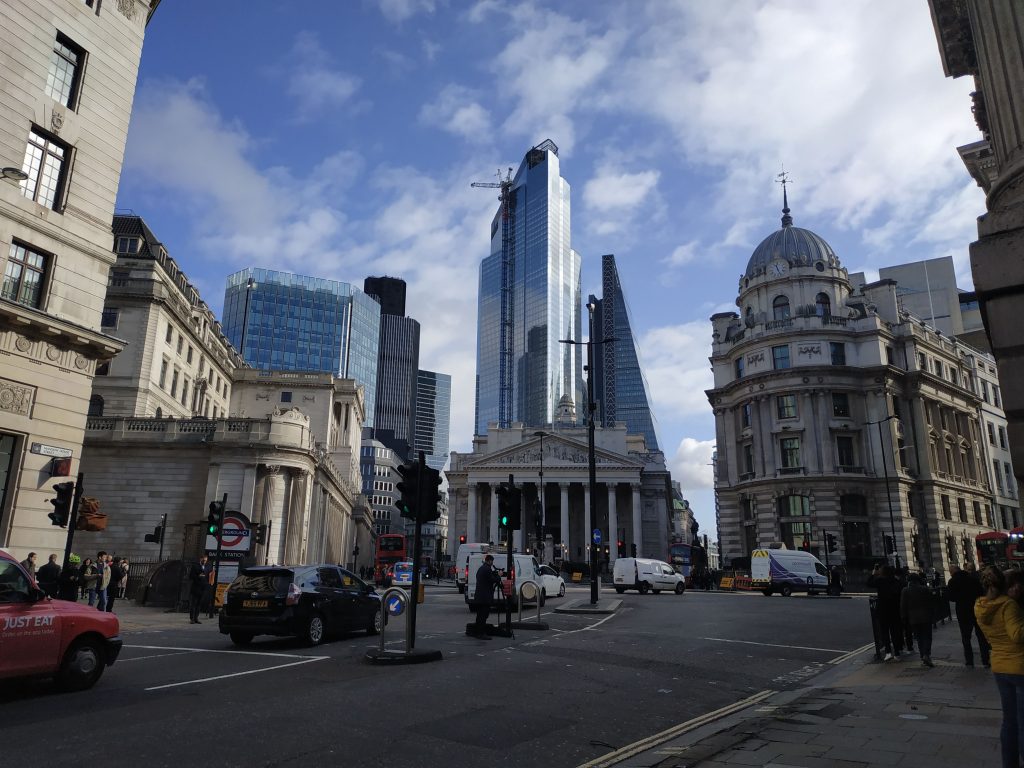
The City of London has always been radical in urban design though perhaps not always in implementation. The walkways never reached levels seen in, say Toronto, where 19 miles have been built of the PATH network containing 1,200 shops and services and linking “over 50 buildings, six subway stations, eight hotels, and a railway terminal”.
Those stumps that remain are lovely little time capsules of a future never realised. And also a blessed relief from the packed pavements below. Let’s hope they stay as places to catch a breather, and still use for their original purpose of taking the odd shortcut over traffic below.
Running a site alone takes time and a fair bit of money. Adverts are far from enough to cover it and my living costs as a private renter.
You can support me including via Paypal here Another option is via Patreon by clicking here You can also buy me a beer/coffee at Ko-fi here There's also a Facebook page for the site here Many thanks